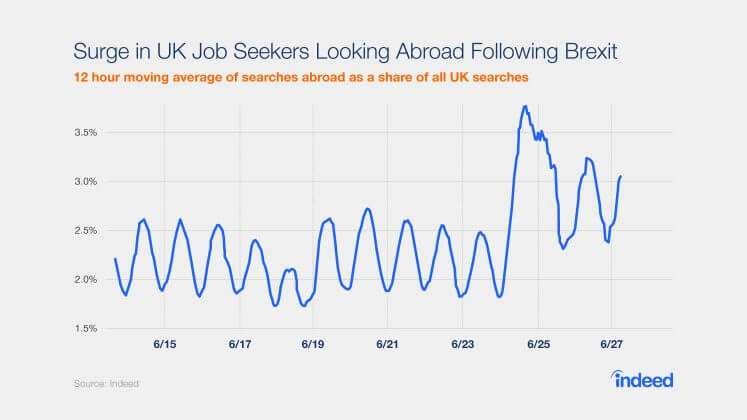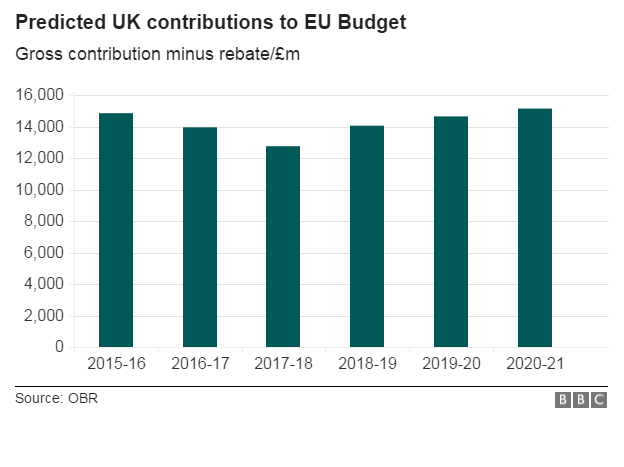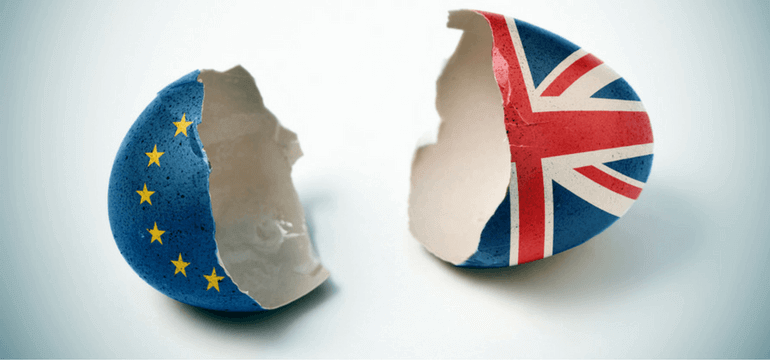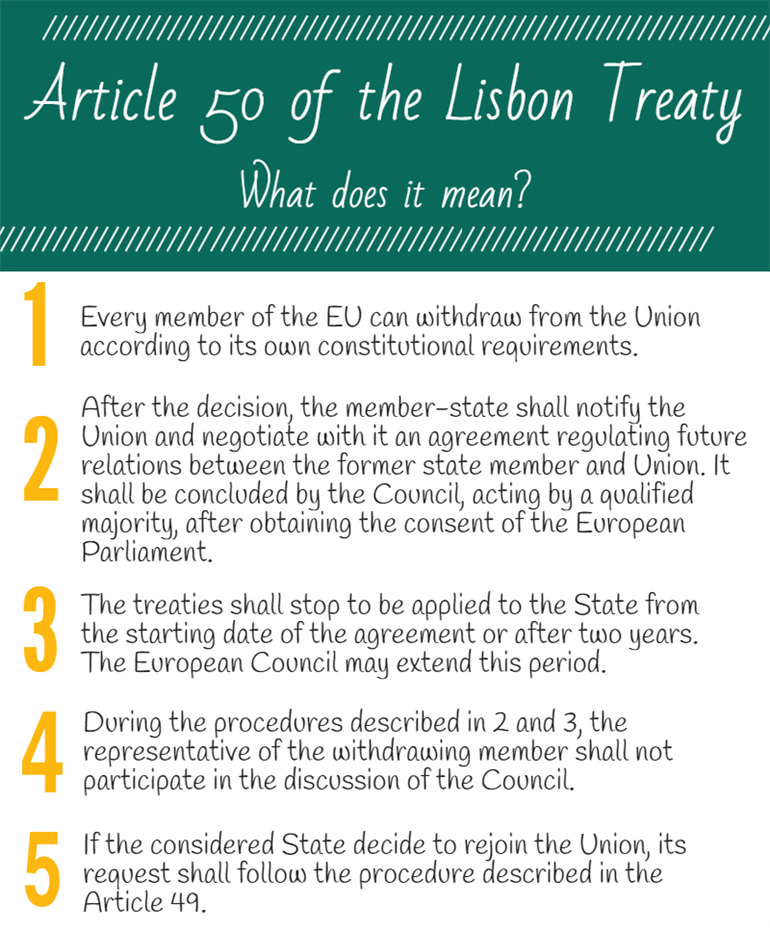- Market-Inspector.co.uk
- Blog
- Impact of Brexit on Businesses in the UK
Impact of Brexit on Businesses in the UK

In a historic referendum on June 23rd, 2016, Britain voted to leave the European Union. After which, the pound fell to its lowest since 1985, immediately after the result was declared. The UK is considered one of the best countries to start a business, but that could change due to the unknown effects Brexit could bring.
There are Brexit campaigners who have optimistic predictions for Britain and its businesses. But there are still many sceptics who predict that this has been a big mistake for Britain, and that it will be seriously impacted by multiple factors.
So, how can Brexit affect businesses in the UK? You may be doing business in the UK, but most of your raw materials come from, let’s say Germany, for example. Since free trade between UK and EU will no longer be prevalent, the costs of your supplies hike up.
On the other hand, UK’s export business may take a hit because of higher costs and tariffs. This is an effect that can be seen across the supply chain.

If you would like to use this infographic on your website, use the embed code below:
What are the Costs of Brexit to UK Businesses?
UK exports will take a hit
According to statistics, in 2015, the UK exported £133 billion worth of goods to the rest of the EU, which is almost equal to half of global goods exports. It is predicted that the UK will experience a loss of at least £4.5 billion a year, if they leave the EU without negotiating a new trade agreement with the EU.
This could take a major hit on export businesses in the UK, as their costs will hike up with the increased tariffs. It will result in UK businesses being less competitive in the EU markets and globally, as well.
Even if the businesses choose to maintain a competitive edge by decreasing prices, it would mean lower profits for them. According to Oxford Economics, the long-term cost to the UK’s economy under the WTO trading guidelines, could be between 1.5 and 3.9% of GDP by 2030. They have also predicted that the UK’s exports would be lowered by 8.8%.
Losing access to single-market
The European Free Trade Association (EFTA) was formed in 1960, which the UK was a founding member. If the EU decides to change policies after brexit, it could mean that the UK will lose its access to the single market.
In a period of 2 years between the Brexit decision and the actual exit of the UK from the EU, the UK must negotiate free trade agreements with the EU and other countries globally. Economists estimate that Britain will be at a loss equating £75 billion, if they are excluded from the single market.
Even though the UK won't have to pay £9 billion toward the European Union budget each year, economists say that the costs would outweigh the aforementioned benefit to the UK.
Impact on employment and labour
Ever since the UK voted to leave the EU, the number of migrants looking for jobs outside the UK have spiked up, says Indeed, a leading job site. According to statistics, the UK’s unemployment rate is likely to increase to 6.5% due to recession, which is a loss equivalent to 500,000 jobs.

Source: Indeed
The latest figures say that there are currently 2.1 million European immigrants working in the UK. In industries such as engineering, IT, and construction, where there are shortages of skilled workers in the UK, immigrants from the European Union are filling the void by bringing in vital skills. They are also a major contributor to the unskilled labour market.
EU immigrants also contribute substantially to the healthcare sector in terms of employment. If these EU workers leave the UK, there will be a huge gap between the demand for skilled workers and supply. Thus, the UK’s ability to recruit international talent could be at stake.
Possible reduction of foreign investment
Half of the UK’s FDI stock accounting for £1 trillion, comes from the rest of European Union. After Brexit, higher trade costs and tariffs would likely decrease investments in the UK.
According to official analysis, leaving the EU would have a negative impact on FDI inflows in the UK and is likely to decrease by 22%. The UK being a part of the single market has attracted many foreign investors as they have not had to face high cost barriers from tariffs and could easily export to other EU countries.
This may not be the case if the UK decides to leave the EU and the single market agreement. The uncertainty of future trade relations between the UK and the EU can also dampen FDI into the UK.
In addition, the uncertainity of the UK market may result in SMEs suffering when it comes to seeking business financing. Volatility may make lenders nervous, and could lead to more difficulty for small business funding in particular, as larger enterprises may not be as affected by market changes.
What are the Benefits of Brexit to UK Businesses?
Free from contributing to the common budget
According to a 2015 analysis, the UK contributed £13 billion to the European Union budget. The net contribution amounted to around £8.5 billion each year.
The decision to leave the EU can save the UK government from having to contribute every year. Different studies show different contribution figures. The chart below shows the predictions of the UK’s contribution to the EU in the coming years.

Source: OBR & BBC
Free to make trade agreements
Now that the UK has voted to leave the EU, it has the opportunity to make business deals with countries around the world, from scratch. Countries like China and Australia are already moving to make trade deals with the UK after Brexit.
The UK is exploring multibillion pound free trade deals with China. While China would benefit from having greater access to the UK’s manufactured goods and investment, Brexit will further reduce barriers to the UK’s service industries like banking and insurance, along with other UK goods.
Lesser regulations and obligations
Voting to leave the EU will give the UK the option of not having to comply with EU regulations. The UK will no longer be obliged to pay billions of pounds towards EU membership cost. As Britain had been a major contributor, it can spend all that money on its own growth.
There have been many arguments saying the UK has been burdened with regulations from the EU, costing them millions of pounds each week. From a business perspective, the UK will be free to trade and negotiate with other countries globally, on its own terms. There will also be numerous employment prospects from outside the EU.
What Different Companies Have to Say:
| Company | Industry | Reaction |
|---|---|---|
| Vodafone | Telecommunication | Warned that it could move its headquarters out of the UK |
| Capita plc | Professional services | Some of the company's potential clients delayed their decision making process because of Brexit |
| Jaguar Land Rover | Automotive | The company will introduce new tariffs, becoming less competitive and putting into risk several job positions |
| Lloyd's of London | Insurance | Axed plans for 9 billion pounds share placing because of post-Brexit market instability |
| Virgin Group | Conglomerate | Axed a deal that could be worth of 3000 jobs as a direct consequence to Brexit |
| John Lewis | Retail | Warned that prices could increase |
| EasyJet | Airline | Applied for an external-UK air operating certificate |
| Hiscox | Insurance | Considered having a subsidiary in Europe, for example in Malta or Luxembourg |
| Nissan | Automotive | Delayed some investments in its plant in Sunderland because of Brexit |
| Deloitte | Professional services | Affirmed that the single market is less important than the ability of bringing workers with diverse skills to the UK |
| Oliver Wyman | Management consulting | Expected that more than 70 million job positions and £10 billion depends on the results of Brexit negotiation |
| Visa | Financial services | Considered to cut job positions in the UK, in favor of a relocation on the European continent |
| Barclays | Banking and financial services | Left the crisis mode despite the large fall in banks' share prices after Brexit vote |
| HSBC | Banking and financial services | Ruled out moving from its London office, even though it was considered an option initially |
| Oliver Wyman | Management consulting | Expected that more than 70 million job positions and £10 billion depends on the results of Brexit negotiation |
| Siemens | Conglomerate | Put the wind turbine's investment on hold and it needs to replan the strategy |
| Nissan | Automotive | Delayed some investments in its plant in Sunderland because of Brexit |
| Tesco | Retail | Found an agreement with Unilever after that the supplier was asking for a rise of 10% |
| JCB | Heavy equipment | Left the Confederation of British Industry because of its anti-Brexit stance |
Sources: Financial Times and BBC
Insolvency Prediction of UK Businesses Post Brexit
| Year | Insolvency Prediction | Percentage |
|---|---|---|
| 2016 | 20,000 | 1% |
| 2017 | 21,800 | 8% |
| 2018 | 23,100 | 6% |
| 2019 (in case of 'soft leave') | 25,170 | 9% |
| 2019 (in case of 'hard leave') | 26,570 | 15% |
Source: Euler Hermes
Opinions of Academic Experts:
“While many economists had predicted an immediate significant negative impact on the UK economy subsequent to the Brexit vote in June, the 4 months since the vote are perhaps better characterised as the lull before the storm. While the FTSE 100 share index closed near its all-time high on 3 October, it is dominated by exporting firms, the main beneficiaries of the 18% fall in sterling’s value (against the USD).
The currency's continuing weakness is exacerbated by the recent Bank of England interest rate cut and economic stimulus measures. Brexit proponents point to the fact that Office for National Statistics (ONS) data indicate economic growth accelerated faster than anticipated prior to the Brexit vote, with Gross Domestic Product (GDP) growing by 0.7% in the three months to the end of June, up from the initial estimates of 0.6%.
However, uncertainty about the future path of Government policy and the reaction of the economy to the forthcoming Brexit negotiations remains very high, and overall the risks are more significant on the downside.
The Federation of Small Businesses (FSB) indicates confidence in the small business sector is declining. Inflation is increasing slowly, with the Consumer Prices Index (CPI) rising to 1% in September. The UK is now starting to see raw material prices rise, partly as a result of the falling pound, and it is only a matter of time before this feeds through to consumer prices with a likely resulting knock-on effect on consumer confidence.
While the uncertainty surrounding the Brexit vote initially failed to hit house buying or house prices in the UK, Nationwide’s latest figures indicate that annual house price inflation has fallen, from 5.6% in August to 5.3% in September. This is mainly due to the number of houses for sale approaching a 30-year low, a view backed up by Bank of England figures showing the number of new mortgages being approved by banks and building societies falling to its lowest for 18 months.
Moreover, uncertainty over what happens next served to rein-in the construction sector during the late summer, with ONS figures also pointing to the fact the sector is witnessing material input costs rising at their fastest rate since July 2011.”
-Michael Bowe
Professor of International Finance
Alliance Manchester Business School
The University of Manchester
Connect
“An increased difficulty to retain highly educated and talented people and also to attract those people to work in the UK.”
-Kevin Amess
Associate Professor in Industrial Economics
Nottingham University Business School
Connect

“The impact of Brexit on business in the UK will depend entirely on what scenario emerges from the negotiations between the EU and UK. In the case of a ‘soft Brexit’, where the UK remains in the single market and customs union, the impact on business might be relatively muted.
Under such a scenario it is likely the UK would still have to maintain elements of EU law and regulations with little political influence over them. This, however, would facilitate trade with the EU, the UK’s largest trading partner.
Restricting immigration has the potential to reduce the pool of talent that business can draw on. But any additional flexibility that the UK may or may not gain in developing trade deals globally would, at the margins, be beneficial.
However, if a ‘hard Brexit’ scenario materializes, where the UK leaves the EU single market and customs union and reverts to world trade organization rules, this is likely to increase costs of exporting and importing to and from the EU, and dampen economic growth. It also has the potential to make the UK and less attractive location for foreign direct investment, but this will also depend somewhat on a number of other factors including the business environment that emerges.”
Professor Brad MacKay
Chair in Strategic Management
University of St Andrews
Connect
Impact on Trade
Investments
For the UK, being a part of the single market has always been an attractive factor for foreign investors because it meant free trading across EU countries. If the UK decides to change its policies and not have access to the single market, then it could have potential impacts on FDI performance in the coming years. Although, this is the analysis of most people, the pro-Brexit group has a different point of view. They are emphasising on other factors, such as competitive edge and global supply chain connections, that make the UK an attractive destination for foreign investors. They believe strongly in the UK’s ability to pull in investment will continue irrespective of Brexit. So, the uncertainty prevails, at least for the next two years while the UK makes negotiations before implementing Lisbon Treaty Article 50.

If you would like to use this infographic on your website, use the embed code below:
Global Trade Agreements
After Brexit, the UK is likely to have more control over negotiating trade deals and agreements with the non-EU countries. On the other hand, it may lose the negotiation power that it had as a member of the EU. Negotiations around the world are increasingly moving towards Blocs such as EU, ASEAN, and NAFTA, so this means that the UK will have more challenges negotiating as an individual country with other large economies like India, China, and the USA.
While some sectors in the UK’s trade may benefit from higher negotiation control, there are others that will also be affected. Industries that depend on migrant labour could be impacted after Brexit. Let’s look at some factors that describe the impact Brexit will have on the international trade of the UK.
Regulations Affecting Trade
There is uncertainty as to how regulations will affect the UK post brexit. If the UK wants to have continued access to the single market, it will have to abide by EU regulations. The regulations from other countries would be deal based and individual. According to OECD, the UK’s labour markets and enterprise sectors are among the least regulated. There are conflicting views on whether there will be more positive or negative effects after Brexit.
Migrants and Labour
The implications Brexit will have on the labour market and migrations will be determined by negotiations between the UK and the EU following the divide. If the UK wants to have access to the single market, it will have to accept the free movement of people from EU countries into the UK.
People who are pro-Brexit have suggested that the UK must adopt the Australian points based system for immigration. However, if the UK introduces a work permit system for EU migrants, it would involve a lot of cost and paperwork required to process the permits.

Valli is the Digital PR & SEO Manager at Market Inspector. She has an educational background in business management and marketing. She is a passionate digital marketer and enjoys building her skills within SEO, online marketing and PR. She holds over 5 years of experience in creating content, B2B marketing, link building and digital networking. Her focus lies in the areas of business, marketing, green energy and sustainability, to name a few. Her work has been published in various media such as Entrepreneur, Business Insider, Creativebloq, Designtaxi, and more.
We strive to connect our customers with the right product and supplier. Would you like to be part of Market Inspector?

